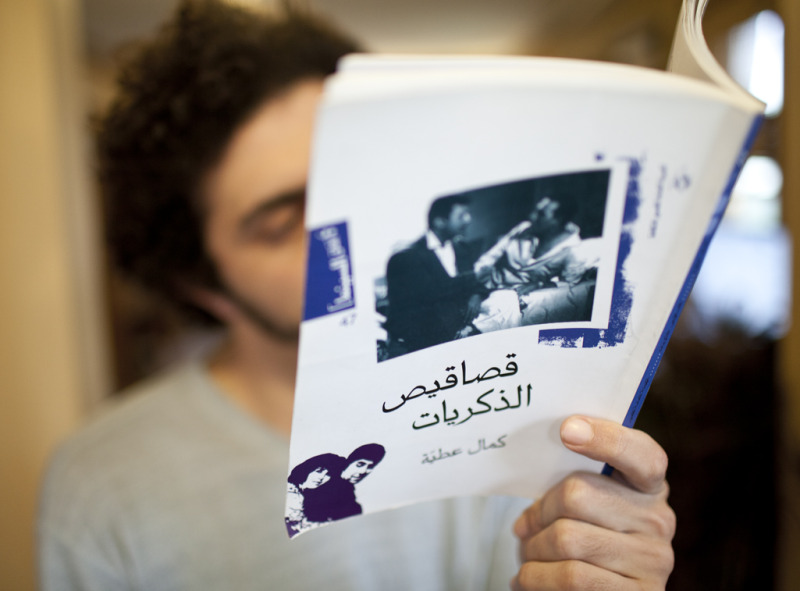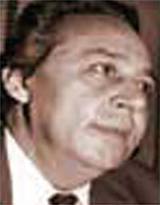Reflections on Reflections: Qasaqees ath-Thikrayat
 04-16-2012 | tagged
04-16-2012 | tagged  Cutouts of Memories,
Cutouts of Memories,  Kamal Atiyah,
Kamal Atiyah,  Qasaqees ath-Thikrayat,
Qasaqees ath-Thikrayat,  The Postman,
The Postman,  Um-Hashim's Lantern,
Um-Hashim's Lantern,  Yahya Haqqi,
Yahya Haqqi,  egyptian,
egyptian,  قصاقيص الذكريات |
قصاقيص الذكريات |  Post a Comment |
Post a Comment |  Email Article |
Email Article |  There are memoirs that reach well beyond the experience of their authors to realize insight and wisdom in a multitude of domains that contain the human experience. Qasaqees ath-Thikrayat (قصاقيص الذكريات, Cutouts of Memories) is not such a memoir.
There are memoirs that reach well beyond the experience of their authors to realize insight and wisdom in a multitude of domains that contain the human experience. Qasaqees ath-Thikrayat (قصاقيص الذكريات, Cutouts of Memories) is not such a memoir.
 Kamal AtiyahQasaqees at-Thikrayat recollects notable experiences and events relating to most of the twenty-three feature films and one of the several documentary films directed by Kamal Atiyah. The book’s chapters are assigned a film each, recounting their plots before turning to anecdotes of their production and personalities. Yet, though these anecdotes do amuse at times and do signify practices and intrigues of the Egyptian cinema industry, their implausibility is exasperating. Moreover, Atiyah, as accomplished as his career has proven—one that has involved songwriting, writing, directing and voice acting—is defensive and at times self-aggrandizing, so as to thwart any levity or insight otherwise garnered. A chuckle to every handful of yawns amalgamated.
Kamal AtiyahQasaqees at-Thikrayat recollects notable experiences and events relating to most of the twenty-three feature films and one of the several documentary films directed by Kamal Atiyah. The book’s chapters are assigned a film each, recounting their plots before turning to anecdotes of their production and personalities. Yet, though these anecdotes do amuse at times and do signify practices and intrigues of the Egyptian cinema industry, their implausibility is exasperating. Moreover, Atiyah, as accomplished as his career has proven—one that has involved songwriting, writing, directing and voice acting—is defensive and at times self-aggrandizing, so as to thwart any levity or insight otherwise garnered. A chuckle to every handful of yawns amalgamated.
Yawns would have been sufferable, but not the several cringes drawing mainly from the three deferential references to Hitler and from Atiyah’s boasting about having rightly, to his thinking, got away with hitting a Jewish East German production manager who had provoked Atiyah by presenting him with a bouquet of flowers, lifted from a hotel table, in recognition of the death of Abdel Hakim Amer, during the tumult that had rocked Egypt following its stunning defeat in the 67 War.
So why did I read it? Because my brother had gifted me the book and might have fairly wondered if I were going to discuss it on my film blog. More so, I wanted to compare the best regarded film of Atiyah’s titled Um-Hashim’s Lantern (قنديل أم هاشم, 1968) to one I soon intend to write about, a favorite of mine titled The Postman (البوسطجي, 1968), because both films’ screenplays are adapted from novels by the same author, venerated Egyptian literary figure Yahya Haqqi, and because both feature actor Shukri Sarhan in the lead role.
No contest—The Postman is vastly superior to Um-Hashim’s Lantern, reminding me that diligence and ambition will get you a long way, but greatness requires knack.
